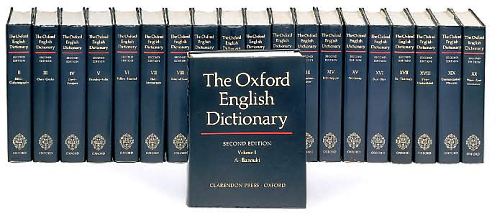OMG and LOL words fall into the Oxford English Dictionary

Yes, the Internet has changed a lot in our lives, and last but not least - the language (and Russian, and English, and Ukrainian, and many others), which got all sorts of words that are characteristic only of the Web. Some of these words were entrenched in the languages of different countries so firmly that the authors of the Oxford English Dictionary, one of the most authoritative explanatory dictionaries published in the UK (the previous version of the dictionary was published in 20 volumes), noticed this in England. Philologists decided to add such words as LOL, OMG and IMHO to the dictionary, thus making these abbreviations quite self-sufficient words that can now be mentioned in all official media and other publications.
Of course, many will say that all these buzzwords are not a pure “Internet product”, since there is evidence that such abbreviations have been used for many years. However, OMG, LOL, IMHO and others like them were most widely used on the Internet, when users communicate in e-mail, in forums, in chat rooms, in instant messengers.
')
It should be noted that the Internet had the greatest impact on the Oxford Dictionary itself - until 2010 this edition was published in the paper version, now it is only in the electronic version. A good example of the evolution of publications. Interestingly, and in the CIS countries are being released updates for languages of different countries? And do the newfangled words from the Web get there?
It is likely that the above words, despite their recognition as official, are unlikely to be used, for example, in the scientific literature. However, in the media, online media - will be, and are already actively used, even in the most serious articles. Yes, and we have some such words slipping into quite serious publications, and most likely, after a while all this will become quite a familiar part of the language, not only for geeks.
Via Yahoo + OED
Source: https://habr.com/ru/post/116256/
All Articles